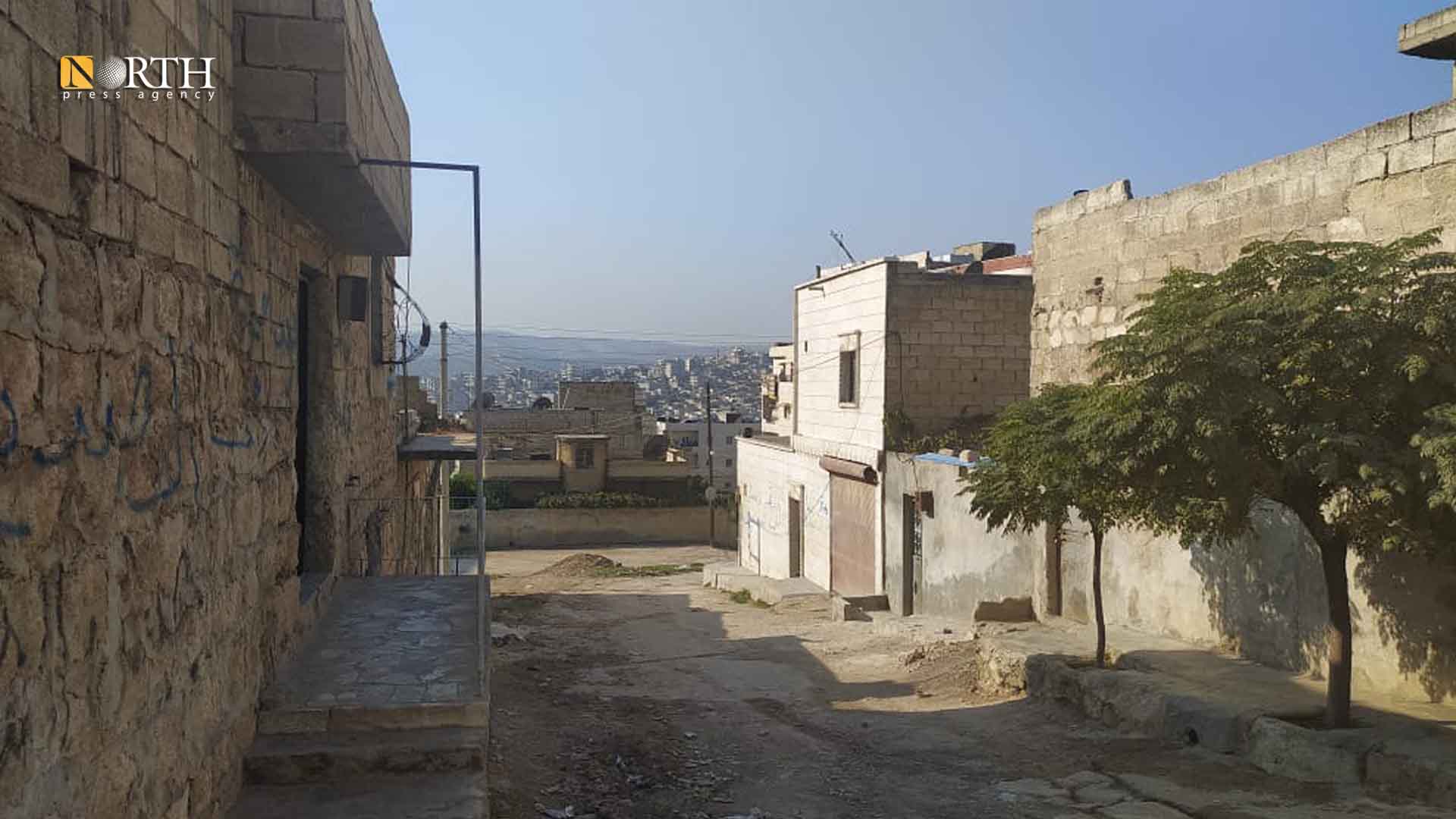AFRIN, Syria (North Press) – Residents of Afrin, northwestern Syria, say that the pro-Turkish armed opposition group continue to seize their homes and sell or rent them to settlers despite their possession of identity papers proving their ownership, amid threats of arrest and harassment if they file a complaint.
Turkey, along with its affiliated armed opposition groups, announced their full takeover of Afrin on March 18, 2018. The Turkish military operation in Afrin displaced more than 300,000 of its original inhabitants, 100,000 of which settled in camps and destroyed villages in Aleppo’s northern countryside.
The Human Rights Organization – Afrin, which is active in the northern countryside of Aleppo, said in its annual proceedings that armed opposition groups have settled more than 400,000 settlers from different areas in Syria in the villages and suburbs of Afrin.
It added that the percentage of Kurds now in the formerly Kurdish-majority Afrin does not exceed 23%.
In 2020, Turkish-backed armed opposition groups seized 250 homes owned by Afrin’s indigenous residents. The remaining residents of Afrin live in isolation without much mixing with the settlers, who now make up more than half of the area’s population.
Documents and paper trail
Nuri Dawoud, a resident from the Ashrafieh neighborhood in the city, said that a family from Homs resides in his house after organizations with the pro-Turkish local council restored it and equipped it with doors and windows.
Dawoud and his wife currently live with his father and mother in Afrin city. “I told the family who settled in my house that I owned it and had documentation for the house, but they made fun of me and threatened me with assault if I spoke about it again.”
The activities of “The Second Human Rights Forum on Human Rights Violations in Afrin Region – Syria” began in the city of Qamishli, northeastern Syria, on Saturday, with the participation of human rights figures.
The forum was held under the auspices of the Human Rights Organization in Afrin and Jazira, the Research Center and Protection of Women’s Rights in Syria, the Human Rights Defense Initiative, and the Rojava Center for Strategic Studies.
At the conclusion of the forum, the participants demanded the UN send an international fact-finding committee to Afrin to investigate the crimes committed there.
Prepared Pretext
The Turkish-backed Ahrar al-Sharqiya group seized the house of Rizan Hamo’s father, a resident of Villat neighborhood in Afrin, under the pretext that its residents live in the Autonomous Administration areas.
Hamo indicated that he owns two houses in Afrin, one of which is for his father, who died 20 years ago. “I showed them the real estate document proving my ownership of the house, but all this proof did not help.”
He stated that his father’s house was initially turned into a military headquarters, and then one of the group’s leaders moved in. Their argument for owning homes despite the presence of their owners in Afrin is that the previous residents allegedly have cooperation with the former Autonomous Administration in Afrin.
Hamo tried, through intermediaries and close associates of Ahrar al-Sharqiya, to regain his home, but all attempts were in vain due to the group’s refusal of any mediation that would force it to evacuate the house, using its power and threatening anyone who tries to file a lawsuit against him with murder.”
Stamped property paper
Residents of Afrin say that some of the armed groups sell the homes of Afrin IDPs to settlers in exchange for sums of money that the members of those groups put in their own pockets.
Abdo Khalil (a pseudonym), a resident of the Villat neighborhood, said that the homes of the displaced people of Afrin became the property of others, with a stamped property paper from the group who owned the house and then sold it to settlers for different amounts of money, according to its location and area.
A little while ago, a young man from Damascus countryside lived in the house of one of Khalil’s neighbors, where the settler paid $1,400 to the Jaysh al-Islam armed group in exchange for the house consisting of two rooms.

